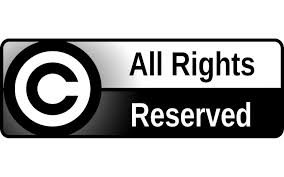Strategic Default - Buy & Bail
How To Walk Away The Right Way and What You Need To Know.
We have the alternative to Strategic Default or Buy & Bail
This decision by homeowners and investors alike is happening more than ever. Let us look at what the definition of Strategic Default is:
A strategic default is the decision by a borrower to stop making mortgage payments (i.e., to default) on a debt despite having the financial ability to make the payments. In other words it's a deliberate default by a borrower. As the name implies, a strategic default is done as a financial strategy and not involuntarily. Strategic defaults are commonly employed by mortgage holders of residential and commercial property who have analyzed the costs and benefits of defaulting rather than continuing to make payments and found it more beneficial to default.
This is particularly associated with residential mortgages, in which case it usually occurs after a substantial drop in the house's price such that the debt owed is (considerably) greater than the value of the property — the property has negative equity or is "underwater" — and is expected to remain so for the foreseeable future. Such borrowers are called "walkaways."[1]
Distinguished economists note that this is one of the few ways of freeing people from the burden of mortgage debt. Once free of the mortgage, debtors are free to use their income for other expenditures.[2]
EFFECTS
Effects vary by jurisdiction and different states in the United States treat default on mortgage debt differently, notably distinguishing whether it is recourse debt and non-recourse debt, meaning whether the mortgage lender can pursue claims against the defaulted debtor.
The borrower after deciding to not make payments any more can live (free of the costs of payment or rent) until the lender forecloses which may take from several months to years. A borrower may use this time to extinguish or negotiate other debt. Mortgage lenders may negotiate with defaulting borrowers to assure maintenance and occupancy of the property until the lender can take title and market the house, and may provide the defaulting borrower with greater than the minimum legal notice to quit (which can be as little as three days) and may even agree to pay a fee to leave the home in pristine condition.
Foreclosure of the borrower's house will result in a negative entry on the borrower's credit rating, possibly making obtaining loans in the future more difficult or more expensive for the borrower. With otherwise good credit a new mortgage from US government agencies will be denied until 3 (FHA) to 7 years (FNMA) have passed since the actual date of foreclosure.
The difference between the value of the property at the time of foreclosure and the amount of the note (assuming the note is larger) is considered by the IRS as "debt forgiven" and may be considered "income" subject to federal income tax. For a short period ending at the end of December 2012 due to the Mortgage Forgiveness Debt Relief Act of 2007, this "phantom income" will not be subject to tax on primary residences.
ETHICAL ISSUES?
Some ethicists have questioned the morality of strategic default, arguing that one has a duty to make payments on debt if one is able.[4] Others argue that there is no such moral duty, a loan being a contract between consenting adults, and noting that financial investors routinely default on non-recourse loans that have negative equity.[3] Some argue further that there is a moral duty to strategically default,[4] and that one should make such decisions based on one's financial interest "unclouded by unnecessary guilt or shame", as lenders who do not modify mortgages do the same, "seek[ing] to maximize profits or minimize losses irrespective of concerns of morality or social responsibility,"[5] or more bluntly stating that "The economy is fundamentally amoral."[6] Further, obligations to honor a contract are balanced by obligations to oneself and one's family, the latter speaking in favor of strategic default, some arguing "You need to put yourself and your family's finances first,"[6] while one also has obligations to a community, which may be damaged by default.[4]
Understand this: if you're considering "strategic default" (allowing your home to be foreclosed, even if you can actually afford the payments), there's a lot for you to think about and to an increasing number of financially savvy people, "default" is no longer a dirty word. Strategic default is increasing in usage among financially savvy people, and exactly what they're doing to make sure that the consequences of strategic default don't cause huge problems for years to come, making default Strategic not disastrous.
There's a SMART way to strategically default (if that's the right choice for you). Don't be mislead into just defaulting and walking away....Walk away the right way with the least consequences. Make it truly strategic.
Lenders Can And Do Sue Foreclosed Home Owners For Their Foreclosure Losses, Despite "Protection" From State Laws...
But There Is A Solution: Homeowners Relief Options offers Homeowners Mortgage Relief when you "strategically default" or "walk away" the right way.
Many people facing foreclosure - particularly those considering 'strategic default' - think that their state has a law that will prevent their lender from suing them to make up for the lender's losses in a foreclosure. But the truth is very different from that::
-- Just think about it... if your house is foreclosed and the lender sells it at auction for substantially less than you owed them, who takes that loss? The lender does... and more and more, they are doing everything the law allows to collect that money, including suing their foreclosure victims --
It's true that about 1/2 of the states in America have some sort of law on the books that purports to protect home owners from lenders who want to sue them for foreclosure losses. So right there, 1/2 of America is standing completely exposed.
But what about the other half... do these laws actually protect foreclosed home owners from lender lawsuits? I've got some bad news for you: In nearly every case, there are some very substantial and broad exceptions to these laws that make them nearly worthless to most people. (This is particularly true for 'strategic defaulters'... lenders really dislike these people quite profoundly.)
If you're considering strategic default, just simply walking away (unfortunately the way people think it should be done), or if you're facing a forced foreclosure, you need to understand the risk you face after the foreclosure.
Homeowners Relief Options provides a clear and reliable strategy that will enable you to "Strategically Default" a better way. If you "strategically default" the wrong way, you're really doing nothing more than extending the problem for many years into the future. But with the proper preparation, structuring and strategy, you can get the most out of the decisions you choose to make.
So what should you do if must or want to walk away? (strategic default?) If you must walk away from your mortgage or property for whatever reason, then walk away with the least consequences with the Homeowners Mortgage Relief Program .
We feel there is a better way to "break the contract" by letting us take over the property to avoid possible foreclosure, instead of you just walking away and foreclosing for sure. Which is what most home owners do for a so called "strategic default" usually resulting in nothing but a complete financial horror story.
Again, you can do what many homeowners are doing to get immediate financial relief: "Strategically Default". If done the wrong way however, by simply walking away and consciously/voluntarily foreclosing it can turn out to be the most disastrous choice you have ever made financially.
If you were going to walk away any way then what have you got to lose by turning the property over to us, Homeowners Relief Options and possibly gaining? Don’t just walk away… walk away right. We help make your default "Strategic"...not disastrous.
Strategic Default? Economic Default? Upside Down Mortgage? Underwater Mortgage? Not sure what to do? Thinking of just walking away?
READ THIS FIRST------> Is There An Upside down or Underwater Home and Mortgage Solution, Option or Alternative?
So...still thinking about just walking away (Strategic Default) and not paying your mortgage? Lenders, banks and mortgage companies know when you might be a strategic defaulter and you try to walk away without paying your mortgage! They check to see if you are paying other non mortgage debts! They have systems in place to catch you.
Strategic default is not a new phenomenon, but it has become more common in recent years as homeowners continue to find their way out of the economic recession. Faced with negative equity and a slumping housing market, many borrowers are choosing to cease paying their mortgages while staying current on non mortgage debts. Meanwhile, lenders are trying to identify strategic defaulters in order to set effective strategies.
Don't take our word for it read this below!:
That's why we say our alternative to strategic default is better than just walking away and not paying your mortgage. Your mortgage is being paid with our Homeowners Mortgage Relief Program while you continue to pay your other debts. We take over mortgage payments and you move on. Check out our ---> Homeowners Relief Program <--- here and get more information here: https://www.homeownersreliefoptions.com/program-benefits
Read here on how to walk away from your mortgage and NOT default and foreclose:
http://walk-away-from-mortgage-and-survive.blogspot.com

